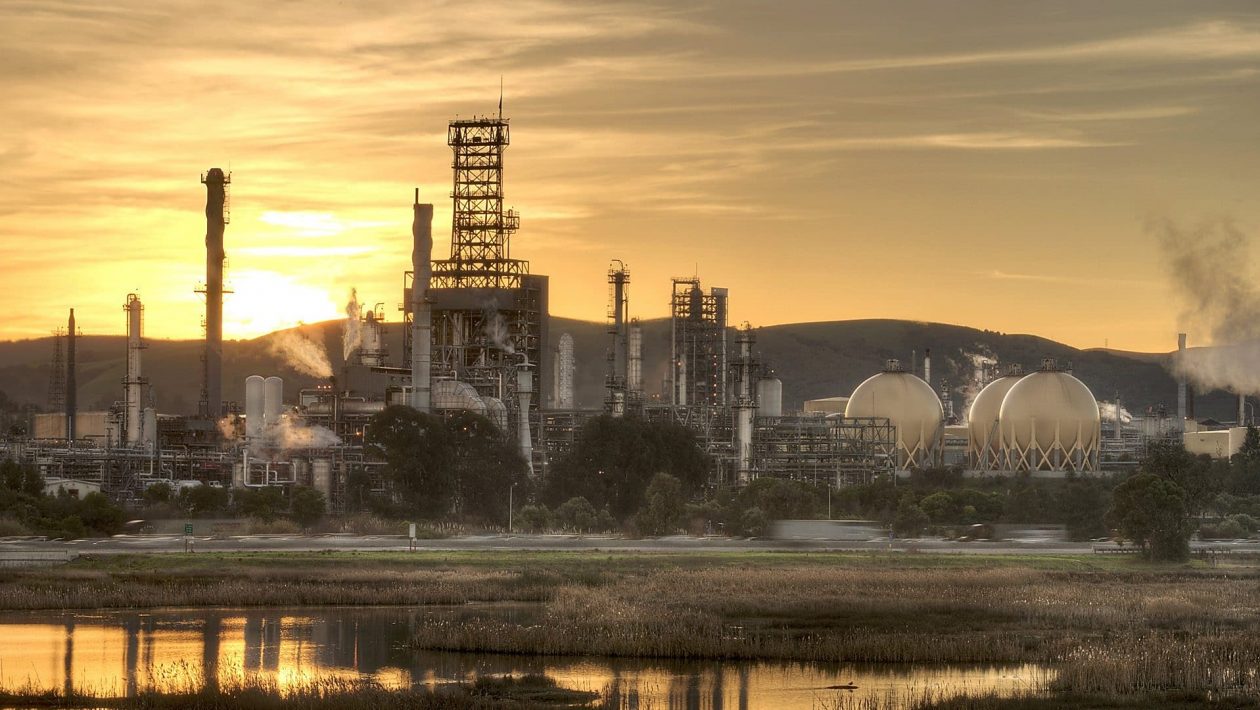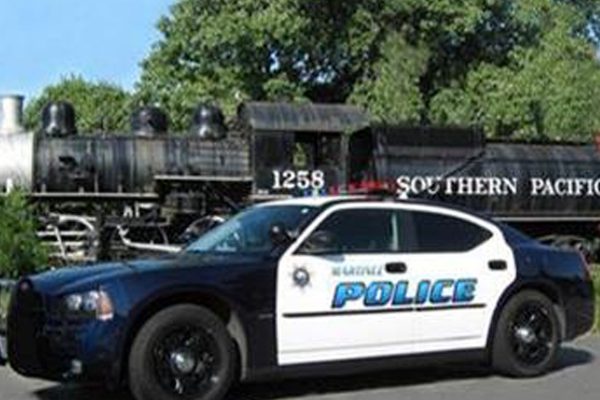by Craig Lazzeretti
Reprinted With Permission From Martinez News And Views
Refinery Oversight Committee Holds First Meeting; Martinez is Sued for Failing to Adopt Housing Plan; Sewer Rates Headed Up, Up and Up; and MRC’s Pond 7 Bites the Dust
The lead item in this edition is written by local journalist Sam Richards off the first meeting of the Martinez Refining Co. (MRC) Oversight Committee investigating the Nov. 24-25 “spent catalyst” accident. Thanks again to everyone who has provided financial support for this newsletter that allows me to enlist experienced professional journalists such as Sam to help produce content. Purchasing a paid subscription, or upgrading your free subscription to paid, allows me to continue to provide content from Sam and other journalists to supplement what I am able to produce on my own (you can also email me at craig.lazzeretti@gmail.com if interested in making a direct contribution).
By Sam Richards
Almost three months after the release of heavy metal particles into the air near the Martinez Refining Co. refinery in Martinez, Contra Costa Health Services’ MRC Oversight Committee met for the first time last week to lay out plans for short-term help and for a deeper dive into possible health effects the release may cause.
This two-pronged response comes after the Nov. 24-25 release of hazardous “spent catalyst” dust from a catalytic cracker unit that left cars, buildings and other surfaces in surrounding communities with a visible dusty coating.
The MRC Oversight Committee met on Thursday, Feb. 16, where members voted to commission a consultant to do an initial evaluation, a “quick analysis” of the environmental impacts and immediate steps to address those impacts, and a more involved “comprehensive analysis” or “risk assessment” of the dust’s impacts on people and the environment, and a timeline for a comprehensive action plan.
A “request for proposals” will be sent out to four firms deemed capable of doing an initial evaluation, including a soil evaluation of impacted areas and possible mitigating actions. The chosen firm will also be charged with communicating its report’s results to the greater community, and be able to address further questions from the general public.
“We know this is going to take some time,” said Nicole Heath, acting director of CCHS hazardous materials programs and chairwoman of the oversight committee. “This will not be a fast process.”
Committee members said they want proposals from interested firms within three weeks. Two firms will be selected for formal interviews, and one of those two ultimately chosen to do the studies. A 45-day public comment period on the report from the initial evaluation had originally been proposed, but that timeframe was deemed too long, and will be something much shorter than that.
“We’re already 11 weeks since the incident,” said Tony Semenza, executive director of the Contra Costa Community Awareness and Emergency Response, and a community member of the oversight committee. “We want to get this out as soon as possible with accurate information.”’
Starting about 9:30 p.m. on Thanksgiving night and continuing into the following morning, an inadvertent release from the refinery sent between 22 and 24 tons of that dust over the communities surrounding the refinery, mostly to the west and northwest.
A “root cause report” (https://tinyurl.com/4brxjfbs) compiled by the refinery said that refinery personnel were unaware there was any release into the community until the next morning (Friday, Nov. 25), when several reports of visible particles came in to the refinery. The Bay Area Air Quality Management District was notified of the incident later on Nov. 25, and county Health Services first learned of the accident from media reports on Nov. 26.
In calling for the independent investigation, Contra Costa Health (CCH) noted that MRC did not report the release via the county’s Community Warning System or directly to CCH, as required by the county notification policy.
The refinery’s “root cause report” lays out 11 prospective “corrective actions” its employees could take to help head off such emergencies, and respond better to them when they do happen. Most of those measures would go into effect by July 31.
The next MRC Oversight Committee meeting will be held after the consulting firms respond to the requests for proposals.
The oversight committee members are Heath and fellow CCHS Hazardous Materials staff members Adam Springer, Michael Dossey, Sam Calvert and David LeCount; Martinez Refining Co. Process Safety and Assurance Manager Ken Axe; United Steelworkers (refinery) representative Nick Plurkowski; Martinez Assistant City Manager Lauren Sugayan; Benicia Fire Chief Josh Chadwick; and community members Semenza, Cheryll Grover, Benjamin Therriault, Pedro Babiak and Deirdre Castillo.
Martinez sued over failure to adopt housing plan
Martinez and 11 other Bay Area jurisdictions are being sued by a group of pro-housing nonprofits over their failure to adopt updating “Housing Elements” to meet future housing needs by the Jan. 31 state-mandated deadlines. The nonprofits (Californians for Homeownership, California Housing Defense Fund and YIMBY Law) said in a news release that this is only the first wave of lawsuits it plans against cities and counties that are not making sufficient progress in addressing the statewide housing crisis.
In the news release, the firms said the initial suits targeting Martinez and the other 11 jurisdictions “focus on cities with a long history of exclusionary housing practices, cities that adopted housing elements unlawfully, and localities that have made little progress in developing their draft housing elements.”
The other 11 jurisdictions sued so far are Belvedere, Burlingame, Cupertino, Daly City, Fairfax, Novato, Palo Alto, Pinole, Pleasant Hill, Richmond and Santa Clara County. The suit against Martinez filed in Contra Costa County notes that California is in the midst of a “housing supply and affordability crisis of historic proportions,” a crisis made worse by “activities and policies of many local governments that limit the approval of housing….”
I discussed where things stand with Martinez’s Housing Element update in this post a couple weeks ago.
I checked in with City Hall to get its take on the lawsuit and where things stand with the city’s efforts to adopt a Housing Element and received the following response from Assistant City Manager Lauren Sugayan:
“The city is diligently preparing a Draft Housing Element for consideration by the Planning Commission and City Council. There is no timeline at this moment I can provide to you. Additionally, it is important to note that the city has not denied any housing projects for which it has received completed applications and will continue to process housing applications received in accordance with federal, state and local laws.”
(I spoke at length with Mayor Brianne Zorn about this and multiple other topics in a sitdown interview earlier this week. I hope to post written and podcast versions of the interview in the near future).
Mt. View Sanitary plans to hike sewer rates (again)
The Mt. View Sanitary District, which handles wastewater services for much of Martinez, sent a mailer recently notifying customers that it plans to hold a public hearing on April 13 at 6:30 p.m. to consider rate increases on annual sewer service charges and other rates and fees. Under the proposal, single-family residences would see their annual sewer charge rise 9 percent annually over the next five fiscal years, hiking the current rate from $814.20 to $1,260 by the 2028 fiscal year. The sanitary district says the increases are necessary “to replace critical aging infrastructure and meet increasingly stringent regulations that require significant upgrades in equipment and technology.” Such rate increases by Mt. View Sanitary are nothing news; the annual residential charge in 2018 was $591, meaning that if the proposed changes are adopted, the rate will more than double from 2018 to 2028.
Property owners who wish to file written protests to the proposed increases can do so by mailing MVSD Board Secretary, Mt. View Sanitary District, 3800 Arthur Road, Martinez, CA 94553 or hand-delivering them to the district office.
MRC can say goodbye to Pond 7
In more evidence that snail mail still has its value, residents may have also noticed a mailer from the state Department of Toxic Substances Control (DTSC) alerting them that it had denied MRC’s permit application for “Pond 7.”
The backstory on Pond 7: According to a DTSC community update from last September, Pond 7, which was constructed about 50 years ago, is used to treat refinery wastewater and stormwater runoff. The agency, in announcing its intent then to deny MRC’s application to delay the pond’s closure, said the pond has shown “signs of age and deterioration” and that MRC has “alternative options for treating wastewater without a permit from DTSC, and the closure of Pond 7 should not impact overall refinery operations.” Among the problems with Pond 7: It lacks a “double liner” or “leak-detection system”; there is shallow groundwater beneath the pond; and “erosion of the pond walls has also been observed.”
Nevertheless, MRC sought a permit to continue operating Pond 7, which DTSC has now officially denied.
City Council goal-setting workshop set for Saturday
The City Council will hold a goal-setting workshop from 9 a.m. to approximately 3 p.m. Saturday at the John Muir Elementary School Multipurpose Room. It is open to the public (best time for public input will likely be after 11:30 a.m.) To learn more about the workshop (and other city news), check out the city newsletter here.




